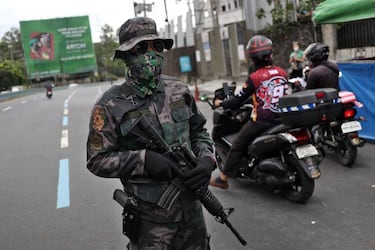Philippine president tells police to 'shoot dead' lockdown abusers
Rodrigo Duterte, the president of the Asian country warned people who choose to ignore the coronavirus lockdown measures that they could be shot, finishing by saying, ‘I will bury you’.

Following reports of disturbances in the Philippine city of Manila, president Rodrigo Duterte made it clear to everybody that they would disobey the orders set out in an attempt to slow the spread of coronavirus at their peril.
“Instead of causing trouble, I will bury you”
With a fragile health service under pressure, home quarantines have been placed upon the nation, but there have been some of the poorest citizens protesting over the lack of food aid being provided by the government. There were also instances where healthcare workers were being physically abused.
Speaking late on Wednesday evening in a televised address, Duterte did not mince his words.
"It is getting worse. So once again I'm telling you the seriousness of the problem and that you must listen.

"My orders to the police and the military... if there’s any trouble and on an occasion they fight back and your lives are in danger, then shoot them dead."
"Is that understood? Dead. Instead of causing trouble, I will bury you."
Response to Duterte comments
In response to the comments, Amnesty International said that it was “deeply alarming” and that “deadly, unchecked force should never be used in an emergency such as the Covid-19 pandemic.”
Related stories
The Philippines police chief also responded on the back of his president’s words saying that the nation’s police force understood that Duterte was demonstrating his seriousness about public order, but that no one would be shot.
To date, the Philippines have officially confirmed 2,311 cases of coronavirus and 96 people have died from the disease, almost all of which has occurred in the last three weeks.

